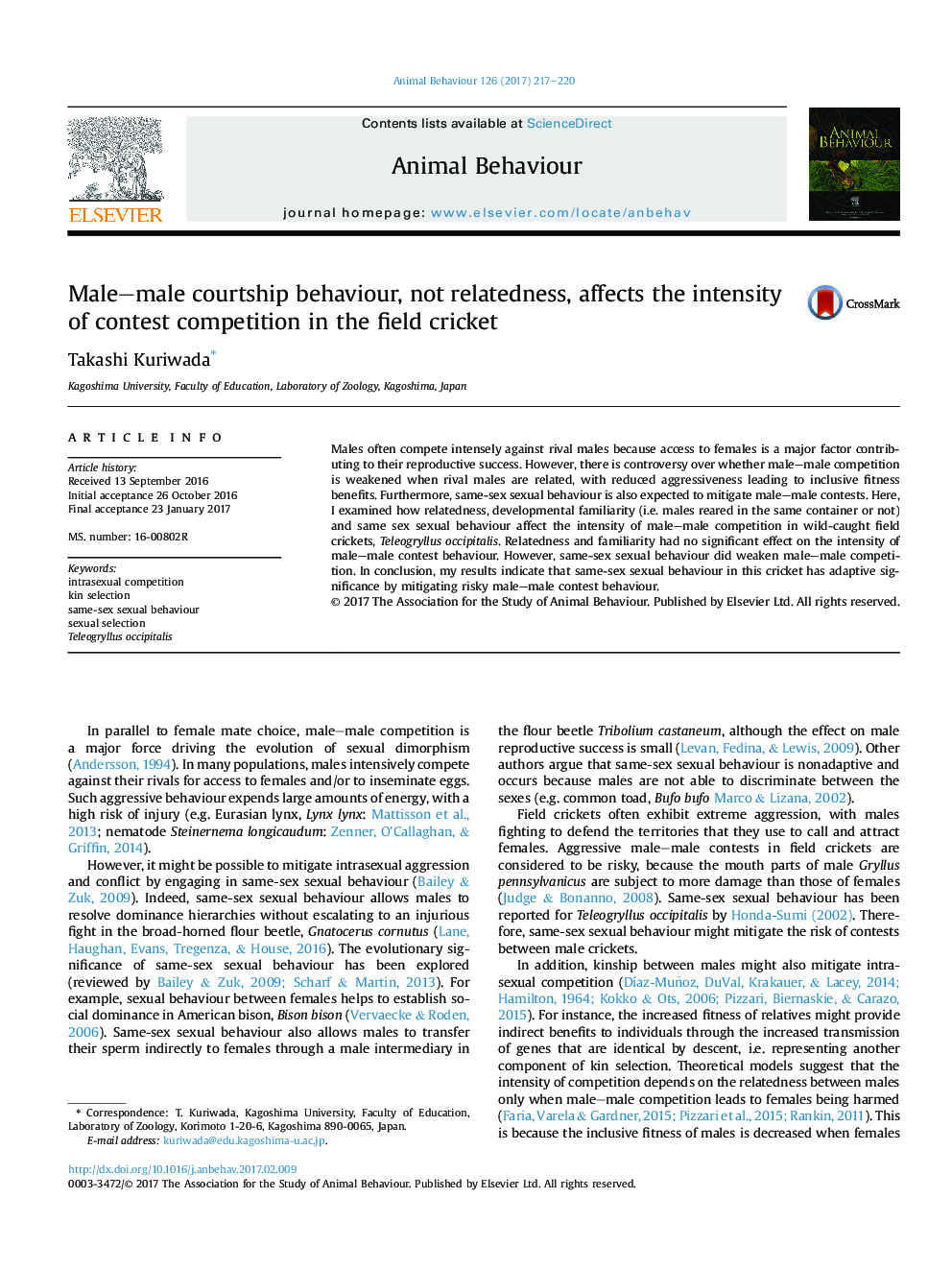| Article ID | Journal | Published Year | Pages | File Type |
|---|---|---|---|---|
| 5538529 | Animal Behaviour | 2017 | 4 Pages |
Abstract
Males often compete intensely against rival males because access to females is a major factor contributing to their reproductive success. However, there is controversy over whether male-male competition is weakened when rival males are related, with reduced aggressiveness leading to inclusive fitness benefits. Furthermore, same-sex sexual behaviour is also expected to mitigate male-male contests. Here, I examined how relatedness, developmental familiarity (i.e. males reared in the same container or not) and same sex sexual behaviour affect the intensity of male-male competition in wild-caught field crickets, Teleogryllus occipitalis. Relatedness and familiarity had no significant effect on the intensity of male-male contest behaviour. However, same-sex sexual behaviour did weaken male-male competition. In conclusion, my results indicate that same-sex sexual behaviour in this cricket has adaptive significance by mitigating risky male-male contest behaviour.
Related Topics
Life Sciences
Agricultural and Biological Sciences
Animal Science and Zoology
Authors
Takashi Kuriwada,
